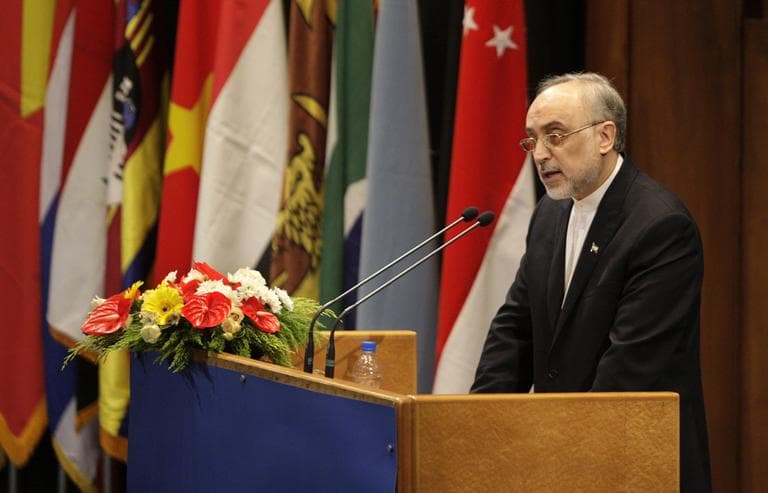Advertisement
Obama May Propose New Ways To Restrain Iran
Resume
Even though international relations didn't occupy much of the agenda at last week's Republican National Convention, President Obama is facing a key foreign policy decision that could become a political football in the weeks ahead.
He must decide what steps to take to try to slow down Iran's growing nuclear program.
The president is under pressure on several fronts. Israel wants to set clear red lines on how far Iran can go toward making nuclear weapons. Iran points out that it has a right to peaceful uranium enrichment. And then there's Mitt Romney, who has said that if he were president, he wouldn't allow Iran to enrich uranium at all.
Meanwhile, according to Monday's New York Times, the Obama administration is trying to calm Israel by restraining Iran using, quote, "a range of steps short of war."
- Washington Post: Foreign Policy Differences Between Obama And Romney
Guest:
- David Sanger, White House correspondent for the New York Times author of a book about Iran titled "Confront and Conceal"
This segment aired on September 3, 2012.